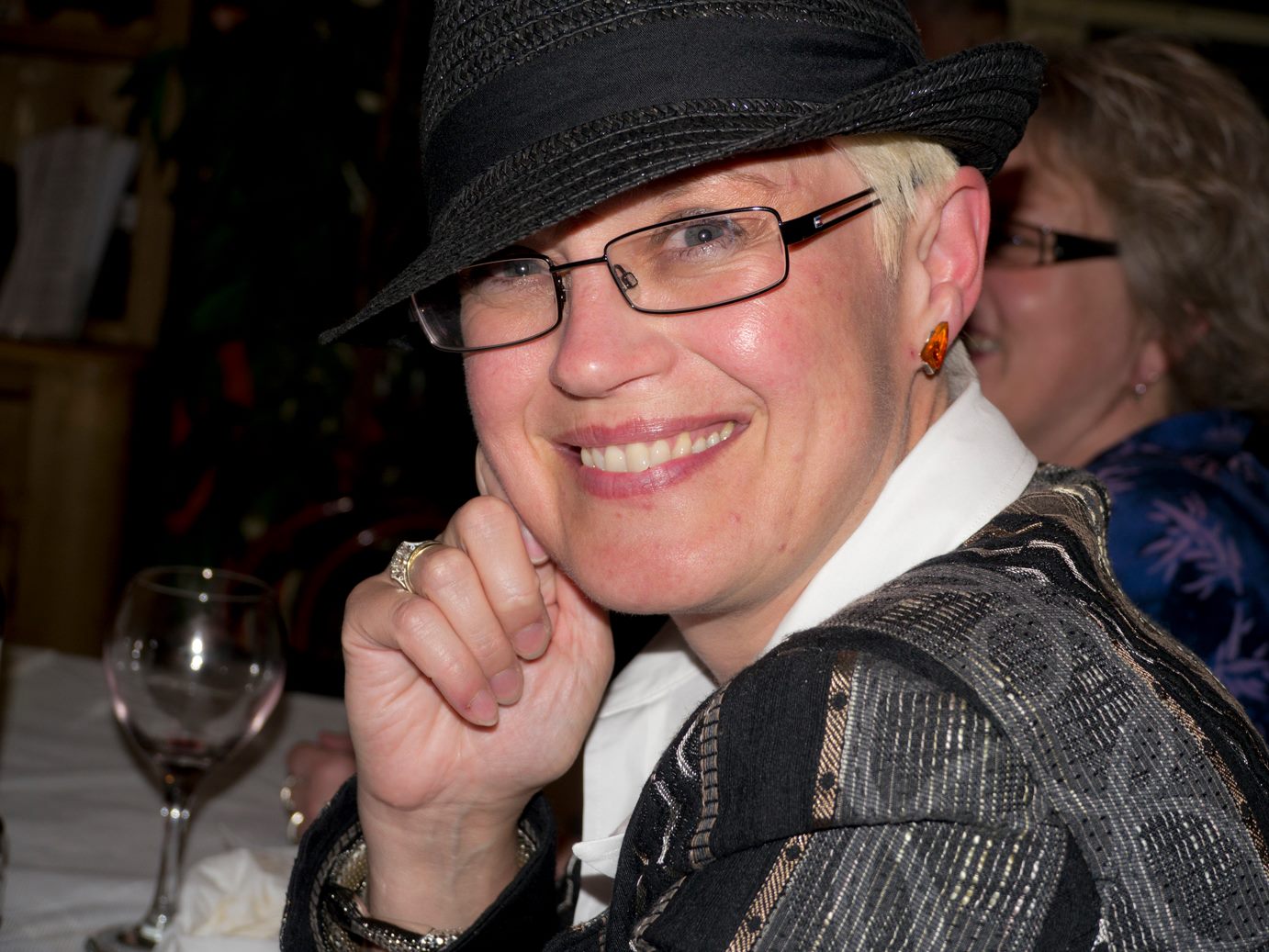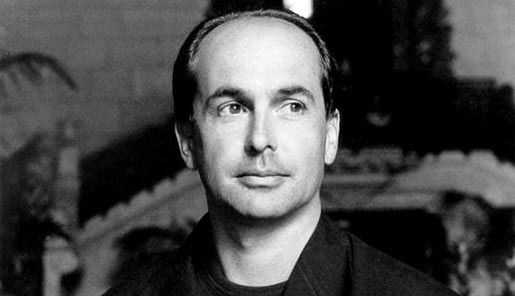A Wild Card Tuesday Special brought to you by Stephen Jay Schwartz
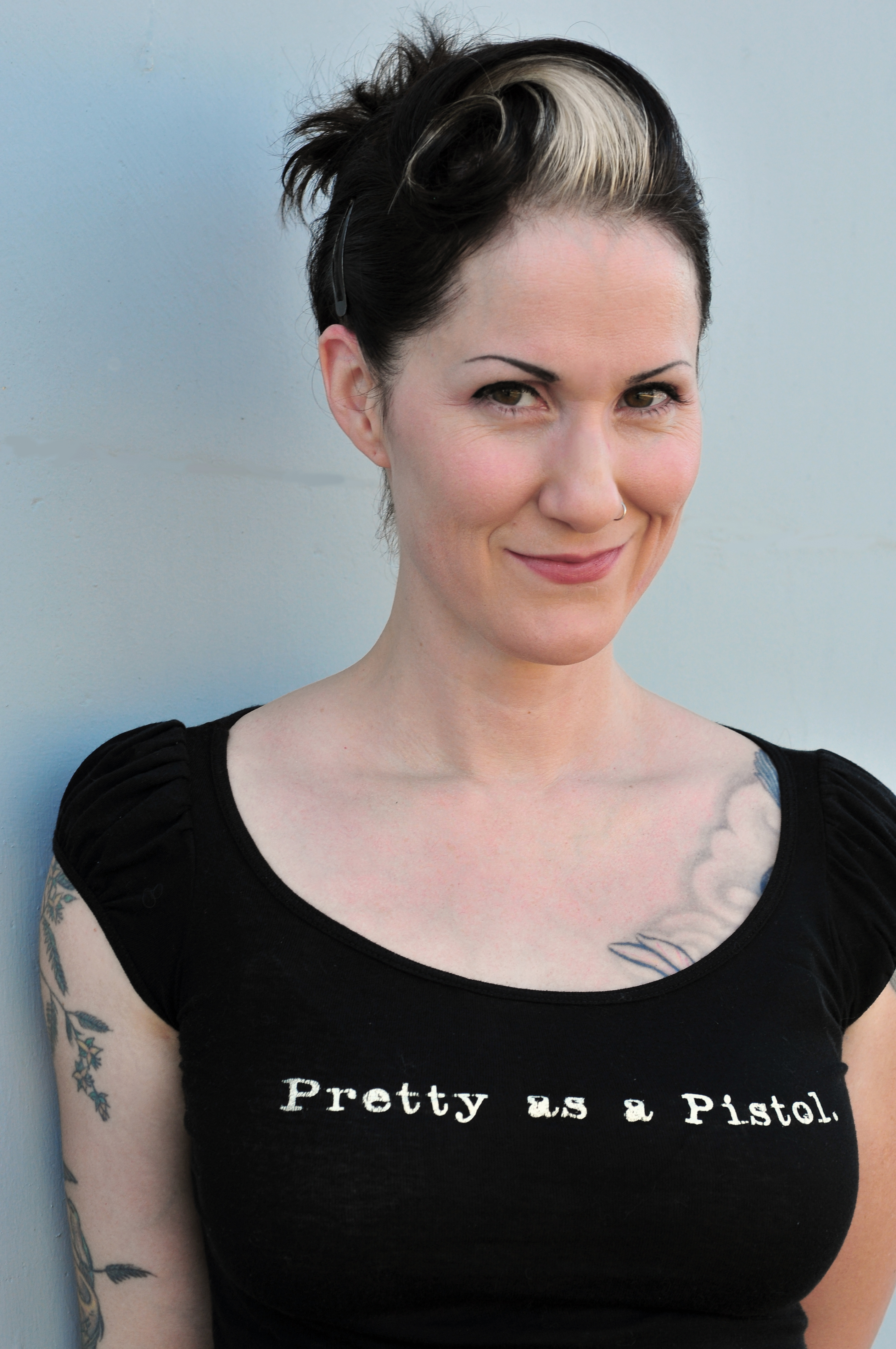
You are about to get a real treat. The lovely and talented Christa Faust is in the room.
When I first began my trip into authordom I asked fellow authors whose works I should read. One author’s name came up time and again, and the “must-read” novel was Money Shot.
I read the book and fell instantly in love with Angel Dare, Christa’s kick-ass protagonist. The novel struck me as high-calibre literature, filled with sharp, witty, gritty lines and real, three-dimensional characters with real, three-dimensional problems. Christa’s style is a nod to old, L.A. pulp noir, but her voice is entirely her own. I became an instant fan and told everyone I knew about the gem I had found. (Everyone who hadn’t already told me about Christa’s work, that is).
I can’t remember exactly where I finally met her – it could’ve been Bouchercon, Left Coast Crime, or the Mystery Bookstore party the night before the L.A. Times Festival of Books. I do remember the fanboy grin I had on my face the day I got her to sign my copy of Money Shot, though. I can’t help it, her work evokes that kind of response.
So do me a favor. Check out the interview. Then check out her website, which is about as cool as websites get.
Then buy her books. You won’t be disappointed.
* * *
Stephen: Christa, you are about as unique as an author gets. There are many of us who play at being tough and cool and hip, but, in my opinion, you're the real deal. You exude a confidence I've only seen in a handful of writers. Have you always been this way? Was there ever a point in your writing career where you were timid and insecure?
Christa: I don’t know about tough, cool or hip, but I’ve always been confident about everything, not just my writing. That’s just a natural part of who I am. It’s not that I think every word I write is genius and that I’m always perfect, I just don’t sweat my own fuck ups and don’t take criticism personally. People are entitled to not like my work and if one guy doesn’t like my book, it doesn’t mean that book is no good. It just means that one guy doesn’t like it.
In this like-button world we live in now, it seems as if 90% of reviews boil down to “this is cool” or “this sucks.” My advice to fledgling writers is not to take either one too seriously. I’m not saying that you should ignore thoughtful criticism from people you trust, just don’t base your sense of self worth on how many people “like” you or how many stars you have on Amazon.
Stephen: How did you get your education as a writer? Did you go to college, study literature and creative writing? How did you develop your style?
Christa: I never made any kind of conscious decision to develop my style. I just tell the stories I want to tell using the voice I have. That voice has grown and developed over the years because I’ve grown and developed as a person.
I did go to college and enjoyed exploring a variety of subjects just to satisfy my intellectual curiosity, but I didn’t learn a single practical thing about being a professional writer. I’ve never had a publisher ask to see my diploma before cutting me a check. The most valuable lessons I learned about the craft of writing were learned on the job, working on novelizations and tie ins.
Stephen: What are media tie-ins and how did you get involved in this arena?
Christa: There are two types of licensed, media-related books. The first is novelizations, like the one I did for Snakes on a Plane. That means that I take a preexisting script for a feature film (often months before it’s even cast, let alone shot) and translate it into prose, embellishing and adding detail and backstory until I reach the required word count, usually 95K.
Tie-ins are books that follow the further adventures of franchise characters, like my novel Coyote’s Kiss, featuring Sam and Dean Winchester from the television show Supernatural. While tie-ins must take into account what has already happened in the existing film or show and what may be planned for the next sequel or season, they are original stories invented by the author.
The most important thing to understand about this kind of work is that, unlike unofficial fan-fiction, it’s licensed and contracted by the franchise owner and you don’t get to pick which characters you will be chosen to write about. Sometimes you might be given a choice between show A or movie B and you are always free to say no to any job if it’s a property you really hate, but you can’t just call up your editor and say “I love Star Wars, so I want to write a Star Wars tie-in.”
As far as how I got into doing this kind of work, a friend of mine got asked to do a tie in and was unable to take the job. He recommended me. I took the job. Once the editors saw that I was fast and solid and could be relied upon to hit those skintight deadlines, they started piling work on me. It was like learning how to swim by being dropped out of a helicopter into the ocean, but that’s how I made my bones as a pulp writer.
The thing I like about writing these kinds of books is the mental workout. It’s like weight lifting for your writing muscles. It might seem simple and repetitive and you’re exhausted and sore after you’re done, but when it comes time to get in the ring with one of your own original stories, you’re a lean mean writing machine.
Stephen: To my understanding, you were the first (perhaps only?) female author to be published by Hard Case Crime. How did you come to be published by Hard Case and how did it make you feel?
Christa: I am, as of yet, the only female author in the Hard Case line up. Which is not to say that there aren’t other amazing women writing in the genre right now, like Megan Abbott and Cathi Unsworth. I just got lucky and got their first. I like to think that other women, maybe new writers none of us have even heard of yet, might eventually follow in my high-heeled footsteps.
I got asked to submit to Hard Case in a funny roundabout kind of way. I was all fired up about the HCC re-release of the Richard Prather standalone novel The Peddler and so I posted on my blog about it. Ardai read my post and responded saying that I should submit something of my own. I didn’t have anything ready to go, but I turned around and banged out Money Shot in about 6 weeks. To my surprise, he liked it and bought it.
Being a part of that stellar line-up made me feel honored and proud and kind of like a freshman crashing a senior party. I still get such a kick out of seeing my books on the same shelf as some of my hardboiled heroes.
Stephen: You've lived through some pretty fascinating experiences, Christa. Most authors would call that "research," and a handful of us would have to attend twelve step meetings to make up for it. What has your experience as a Times Square peep show girl, a fetish model, and a Dominatrix added to your work as an author?
Christa: It’s funny that you say “lived through” as opposed to “enjoyed” or better yet “continue to enjoy.” While I haven’t worked the peep booths in twenty years and don’t do much in the way of modeling these days, I’m still active in the BDSM scene both in my private life and as a professional Dominatrix.
I see booking pro fetish sessions as kind of like writing tie-ins. You don’t get to pick the characters, but you are still free to be creative and have fun within the confines of that set storyline.
But back to experience and writing, I think everyone’s personal life experiences can and do influence their fiction. But I also don’t think writers should be limited to writing only about themselves. I’m not a fighter, but I was able to write about that world by talking to and spending time with fighters. I’ve never killed anyone either, but I’ve never had any problem writing about murder.
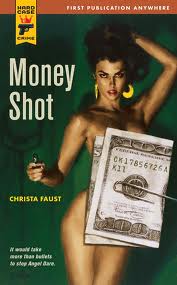
Stephen: Whenever anyone asks me what my favorite novels are I always include Money Shot. Your voice is crisp, authentic and timeless. I've read your early novel, Control Freak, which I also loved, but your voice seems to have coalesced in the pages of Money Shot. How did your style evolve between the writing of these two novels? What influenced your voice in Money Shot?
Christa: As I said earlier, I think my style evolved because I evolved. I was 21 years old when I wrote the first draft of Control Freak. I was pretty green and hadn’t made my bones as a pro. I was reading mostly Splatterpunk horror novels and that influence is strongly evident. As I got older, I found myself reading more vintage pulp and hardboiled novels and falling in love with that genre and it’s tougher, leaner kind of prose. But none of this was planned or on purpose. Mostly I just think it’s a combination of life experience and building up those writing muscles over the past 20 years.
I will say this, Money Shot and Choke Hold are both written in the first person, which probably makes them feel more intimate and immediate.
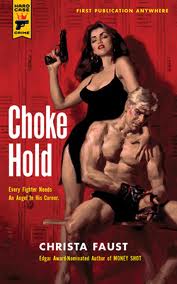
Stephen: Your recent novel, Choke Hold, is a sequel to Money Shot. Will there be more in this series? When can we expect to see the next one?
Christa: Man, I hope so. I don’t have a regular day job so I’m constantly hustling to make the bills. Side projects, tie-ins, teaching, and my BDSM sessions. Unfortunately, I don’t have enough money saved up to take off the time I’d need to work on another Angel Dare book and I’ve never been able to work on two or more books at once. Especially not a more intense, personal project like that. Hard Case Crime is fantastic and Ardai is hands down the best editor I’ve ever worked with, but he doesn’t have a huge budget. The advances aren’t enough to live on. I wish money weren’t a factor, but it is. A writer’s gotta eat.
So if you want another Angel Dare book, buy the shit out of the current Butch Fatale novel, Double D Double Cross.
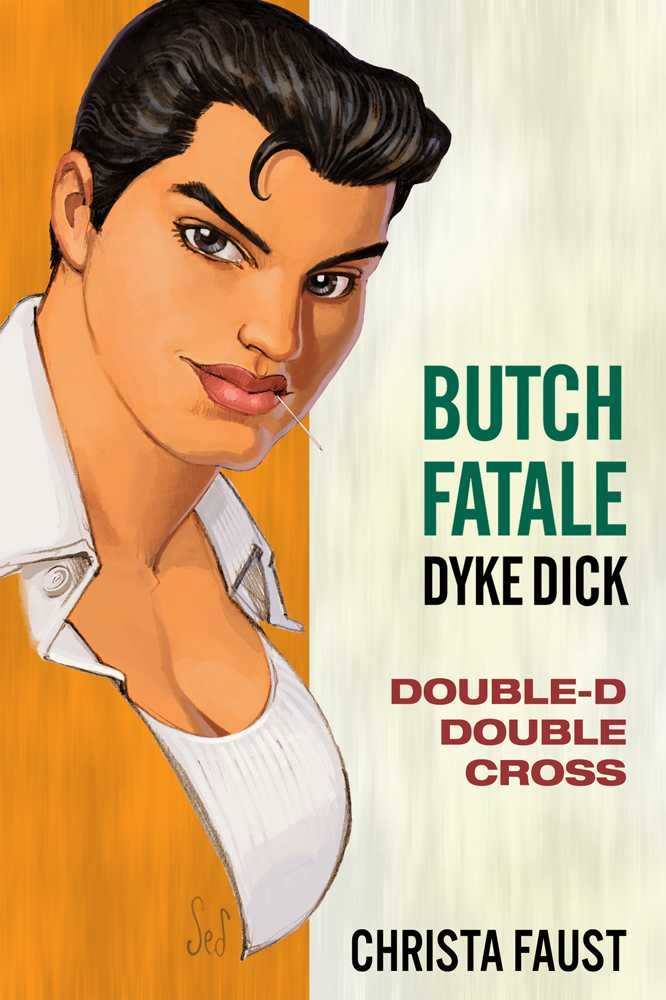
Buy six copies. Tell all your friends to buy six copies. Or your mom. Or your dog. You know the drill.
I’m being facetious here, obviously. But in all seriousness, if you love a writer, support them by buying their work. It seems like basic common sense, but there’s been this unfortunate trend towards viewing writers as a kind of free reality entertainment on social networks. If everybody who “likes” me on facebook or follows me on twitter actually bought a copy of Double D Double Cross, I’d be able to write that third Angel Dare book.
Stephen: Could you tell us a bit about Double D Double Cross? Where did this idea come from? How did it develop? Will it continue as a series?
Christa: The idea for Butch Fatale series has been brewing for more than 10 years. It’s basically my tribute to the Shell Scott novels by Richard Prather. Only I put a butch lesbian in the role of the private eye and I don’t cut to the blowing curtains during the sex scenes.
In most pulp and hardboiled fiction, queer characters are usually villains or comic relief. If they’re main characters, they tend to get cured and made normal or utterly destroyed by their “sickness.” I wanted to make the queer character the hero. And while I was at it, I wanted to entertain the hell out of the reader along the way.
Stephen: Are you experimenting with different publishing platforms? What do you think about the e-book phenomenon?
Christa: A quirky little pet project like the Butch Fatale series seemed like the perfect way for me to test drive the concept of e-publishing. It’s been quite a learning curve, and I’ve still got a long way to go, but I’m having fun with it. Not a kindle millionaire yet, but should be any day now, right?
We really are living in interesting times. What it means to be a professional writer has changed more in the past few years than in the whole rest of my life. It’s exciting and intimidating and challenging and I don’t have any idea where this bus is ultimately going. But I’m going to find out and I hope all my readers will come along for the ride.
Stephen: I've never met an author so fully actualized in life and career. Are you happy? Are you doing what you want in life? What else do you want to do?
Christa: I’d like to be less broke. To be able to spend less time hustling to make rent and focus more on just telling the stories that really matter to me. Healthcare would be nice too. And more shoes.
Stephen: What is a typical day like in the life of Christa Faust? A typical week?
Christa: Write, write, write, walk the dog, write, write, write, foot worship, write, write, sleep. Repeat.
I’m basically a hermit. I spend the majority of my time alone at my desk. Not very sexy or bad-ass, but unfortunately true.
Stephen: What are you working on currently?
Christa: I just kickstarted a second Butch Fatale novel called The Big Sister, which was a whole other new and curious experience in this brave new world of internet-era fiction. In addition to the e-book version, I’m also creating a special Ace Double style paper edition that will contain Double D Double Cross and The Big Sister. I’m hoping to have that one available by December to the people who chipped in to get it off the ground and shortly thereafter to everyone else. You can read more about it here: http://www.kickstarter.com/projects/310000831/butch-fatale-dyke-dick-book-2-the-big-sister
Thanks, Christa, for giving us a peek into your life and your process as an author! And thanks for sticking around to answer questions from our Murderati authors and readers. We appreciate it!










